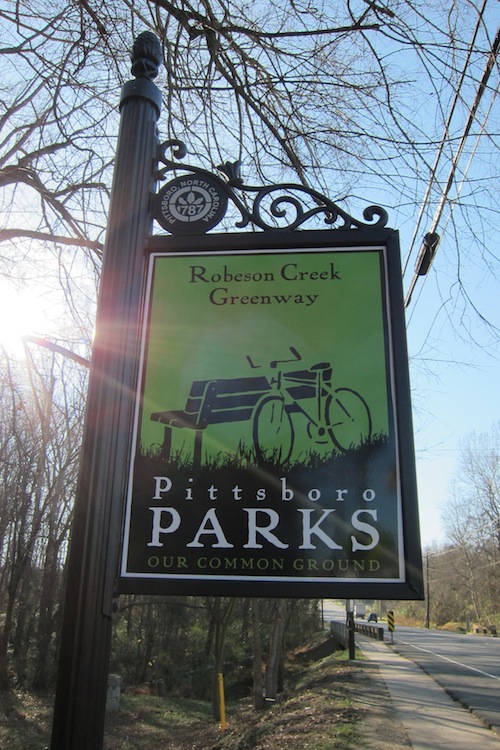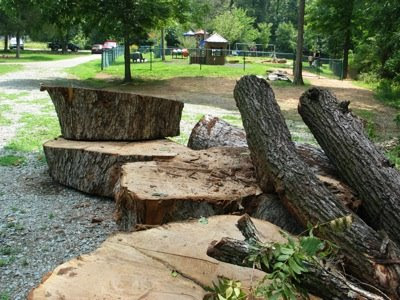
Climbing Structures at Pittsboro's newest park.
One of my favorite parts of the new Mary Hayes Barber Holmes Park (Formerly Rock Springs Park) is the wooded trail section just off of the playground circle. There's no great vista or amazing whoopdesnoozit, just a simple bare earth trail that loops off toward the cemetery and then back toward the play area and ultimately on to points due north. I have to say it's often one of the most annoying, in a way, areas to me, too, because my first impulse is to feel that I don't have time to walk this extra section knowing that the trail will soon loop back and bring me very close to where I'd just come. That's when the reminder kicks in that park trails aren't there to provide the most efficient route from point A to point B, they're there to help people get out of the productive focused mode and into an enjoyment of nature and family and play - in short recreation. It's a zen moment that's kicked in for me several times at that location.
My kids, of course, run along the path as fast as they can, calling back to remind me that, "you're supposed to be playing with us, Daddy, not still thinking about work." I admit it's hard to turn off the nitpicking critique of my own parks. Even while visiting other parks I can't turn off the scrutiny of the built environment around me. Nor do I want to, as it's part of my nature, and it's part of my ever evolving understanding of park design and what makes certain places "better" than others.
I suppose that introduction to the following article is a bit like a looping trail, but hopefully you'll end up in a good place....
An excellent article on the benefits of unstructured play. http://www.melindawenner.com/Clips_files/MiQ109Wenn2p.pdf
A quote from the article:
"...But kids play soccer, Scrabble and the sousaphone—so why are experts concerned that these games and more structured activities are eating into free play? Certainly games with rules are fun and sources of learning experiences— they may foster better social skills and group cohesion, for instance, says Anthony D. Pellegrini, an educational psychologist at the University of Minnesota. But, Pellegrini explains, “Games have a priori rules—set up in advance and followed. Play, on the other hand, does not have a priori rules, so it affords more creative responses.” This creative aspect is key because it challenges the developing brain more than following predetermined rules does. In free play, kids use their imaginations...."



Comments
Post a Comment